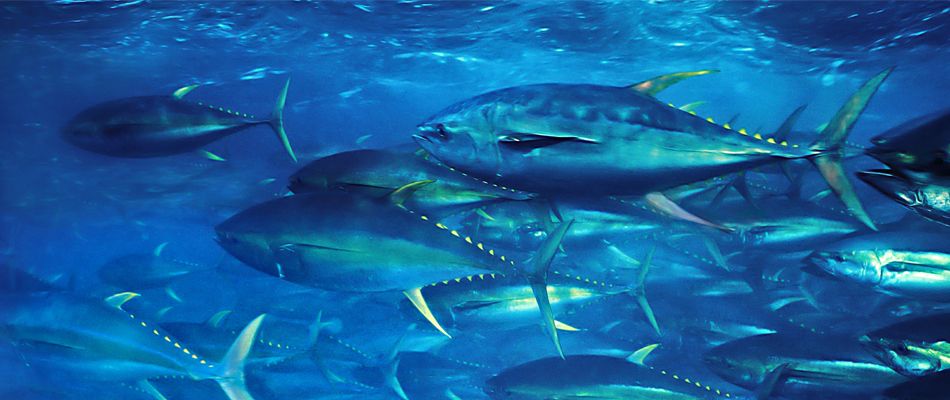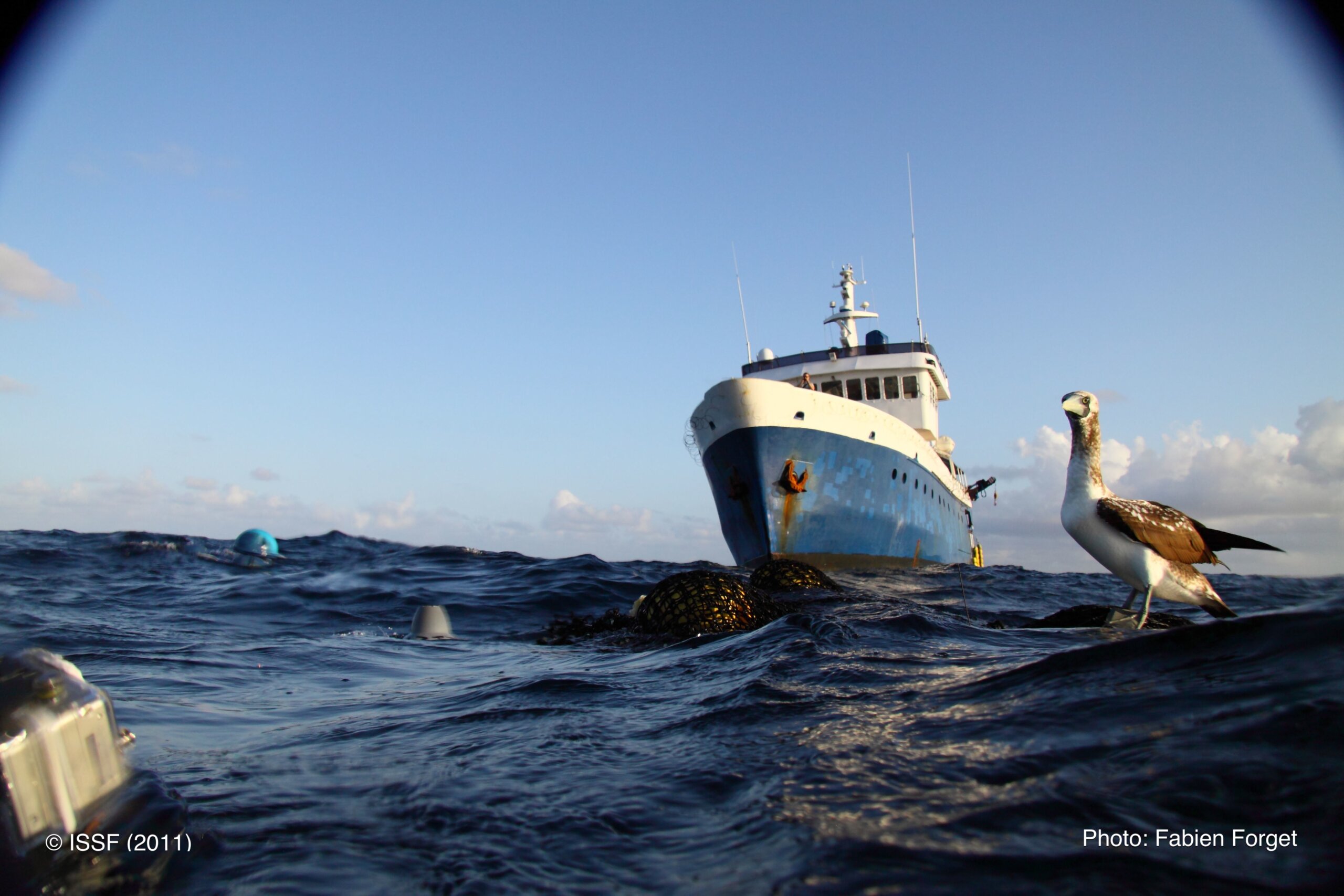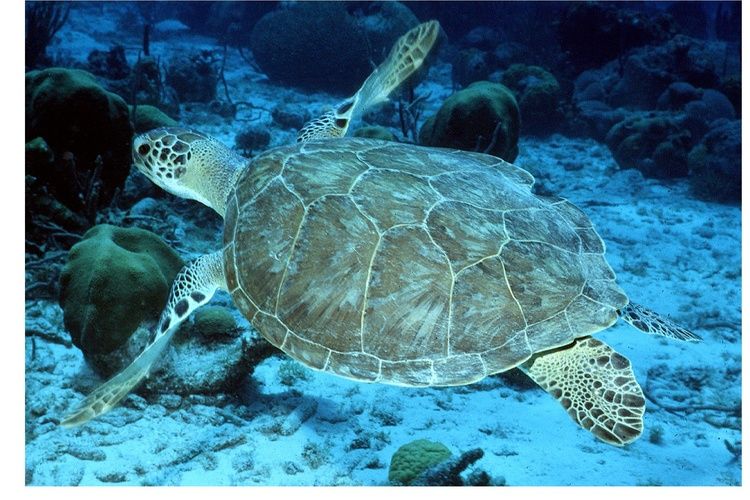
Staying the Course
Note: This message from ISSF President Susan Jackson originally was published in the ISSF 2020 Annual Report in April 2021.
Wherever you call home, I hope that you and your loved ones are safe, healthy, and weathering this difficult period as best you can.
More than ever, we appreciate your interest in ISSF’s conservation work, now in its 12th year. Staying the Course explores how the fundamentals we’ve put in place—scientific research, industry and NGO partnerships, and policy advocacy—continued to drive positive results for sustainable fishing, even in these harrowing times.
Maintaining Our Momentum
Last March, as I was writing the letter for our 2019 annual report, pandemic lockdowns were underway worldwide. As alarmed as we were then, we could not have foreseen how devastating COVID-19 would be—disrupting every facet of life nearly everywhere on earth.
For ISSF staff—accustomed to brainstorming with colleagues across a table, presenting research at conferences, and learning alongside professional fishers at sea—the travel restrictions alone could have been profoundly destabilizing. Yet a look back at the ISSF calendar suggests that we hardly missed a beat. The day after I had to place a moratorium on our business travel, we celebrated (while safely stationed in our home offices across various cities and continents) an exciting first: the recognition of two outstanding, up-and-coming fisheries scientists via our initial ISSF Seafood Sustainability Contest.
By the time Month One of our lockdown ended, we had published two technical reports; marked the first successful tuna catch in a biodegradable FAD pilot project; participated in an NGO Tuna Forum Working Group; and conferred with six retailers—and those are just the highlights.
We persevered through 2020, and plunged into this new year without a pause.
Contributing to Progress
But the ISSF team did more than just “keep on keepin’ on,” although that would have been accomplishment enough for any individual or organization in 2020. We undeniably hit our stride.
We marshaled the discipline, tools, and resourcefulness that we long ago had developed as a de-centralized, global team. To stay informed and connected while sheltering in place, we made the most of technologies both innovative and tried-and-true.
Week after week, ISSF shared expertise and ideas—remotely and electronically—in hundreds of ways:
- In addition to governance and project meetings, ISSF staff participated in more than 150 RFMO, Fishery Improvement Projects (FIPs), fishing association, NGO, vessel, and retailer meetings globally. We covered topics that ranged from illegal fishing to FAD beaching, for example, reaching 100 percent of all active purse-seine FIPs and 75 percent of the longline FIPs.
- We facilitated more than 10 webinars and workshops, “training the trainers” on purse-seine and longline bycatch mitigation techniques; sharing our programs with fellow NGOs like the Global Tuna Alliance and Conservation Alliance for Sustainable Seafood; and co-hosting, with The Pew Charitable Trusts, an RFMO compliance best-practices workshop featuring 30 experts from RFMOs, international organizations, academia, and other sectors.
- ISSF staff listened and learned as attendees of more than 60 webinars and seminars on topics as diverse as electronic monitoring adoption; the oceans and climate change; seafood worker rights during COVID-19; and organized crime in fisheries.
- We hosted regular RFMO advocacy coordination calls, convening NGOs represented on the ISSF Environmental Stakeholder Committee, and welcoming Pew, International Pole and Line Foundation, Olive Ridley Project, Blue Marine Foundation, Humane Society International, and American Bird Conservancy as participants.
- ISSF oversaw 20 research projects on biodegradable FADs and acoustic discrimination.
- Our science and advocacy experts authored or co-authored 60+ publications—ISSF scientific and best-practices reports as well as peer-reviewed and RFMO papers.
- We disseminated 100+ new content items, including our e-newsletter, blogs, position statements, infographics, videos, and social media posts.
On top of that, we launched several new initiatives:
- VOSI, a public vessel database verifying participation in MSC-certified fisheries and FIPs
- A conservation measure addressing social and labor policies for seafood companies
- At-sea biodegradable FAD tests in the Atlantic, Indian, and Western Pacific Oceans
In short, ISSF doubled down, despite COVID-19’s challenges and constraints.
Anticipating a Brighter Future
These achievements and partnerships—and the new generation of sustainable fishing researchers, like the ISSF contest winners and the scholars I met at the Stanford Center for Ocean Solutions—have reinforced my optimism about our community’s ability to thrive through and after the pandemic.
For their unflagging support of ISSF’s work, I am grateful to our Board and Committee members; our NGO and industry partners; and these generous grant-makers: the Food & Agriculture Organization (FAO); Kingfisher Foundation; Gordon and Betty Moore Foundation; National Oceanic and Atmospheric Administration (NOAA); Ocean Conservancy; and the David & Lucile Packard Foundation.


